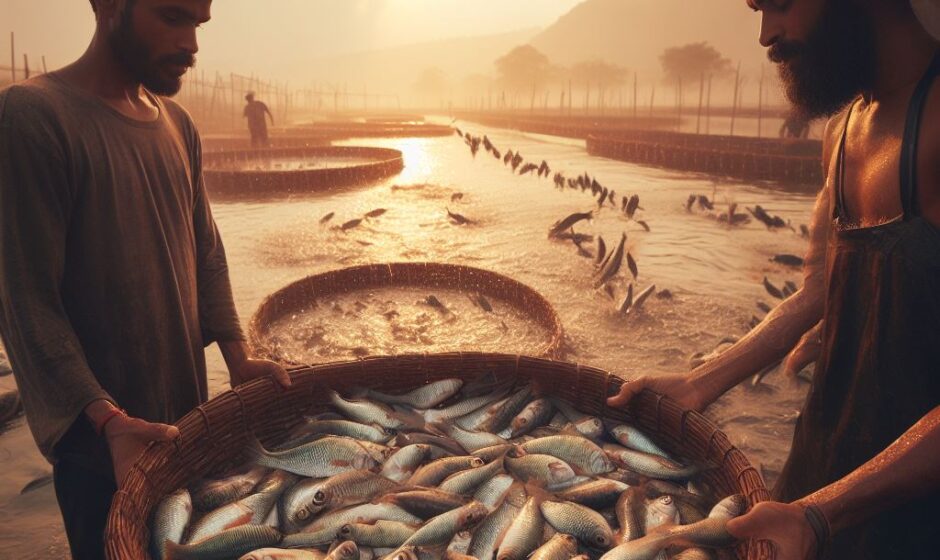In the wake of the Marine Products Export Development Authority’s (MPEDA) decision to lift the moratorium on new fishmeal and fish oil factories, fishermen and marine experts have raised concerns about sustainability in India’s $7.38 billion marine food industry. The Indian Marine Ingredients Association (IMIA) welcomed this move, which they believe will revitalize the fishmeal industry, but stakeholders are urging stricter adherence to sustainable fishing practices.
The moratorium, which had been in place since December 2019, was intended to control the expansion of fishmeal and fish oil production units. Its removal has sparked a debate on the long-term impact on marine resources, particularly regarding juvenile fishing.
Mohamed Dawood Sait, president of IMIA, expressed optimism about the lifting of the moratorium, stating that it would provide much-needed capacity expansion in the fishmeal sector. “This decision is crucial for ensuring a sustainable future for India’s fishing and aquaculture industries,” said Sait. He emphasized that sustainability is a key concern for the industry, noting that Indian fisheries have remained resilient over the past 150 years without any species being driven to extinction.
However, marine scientists and fishermen’s representatives have voiced their apprehensions. Sunil Mohammed, a retired marine scientist from the Central Marine Fisheries Research Institute in Kochi, stressed the importance of sustainability. “Without sustainability, both the fishmeal factories and the aquaculture industry face an uncertain future,” he cautioned.
Charles George, representing the independent fishermen’s union Swathanthra Matsya Thozhilali Aikya Vedi, echoed these sentiments. He acknowledged the government’s support for aquaculture but questioned the decision to lift the ban on new fishmeal units without ensuring strict enforcement of marine fishing regulations. “The move is questionable unless the government enforces the existing regulations rigorously,” George added.
Sait responded to these concerns by affirming the industry’s commitment to sustainability. He highlighted that the primary raw material for fishmeal production—small pelagic fish—is abundant in Indian waters, low in value, and less preferred for human consumption. He also pointed out the industry’s focus on waste management and resource conservation, converting by-products into valuable protein sources for aquaculture, poultry, and livestock.
India’s fishmeal industry, the third-largest exporter globally, plays a significant role in the economy. However, experts insist that stricter implementation of fishing regulations is essential to protect marine resources. These regulations include the use of square mesh cod ends in trawl nets and adherence to minimum legal size requirements for 54 species of commercially important fish.
As the debate continues, the call for balancing industrial growth with sustainable practices remains at the forefront of discussions within the marine food industry.


